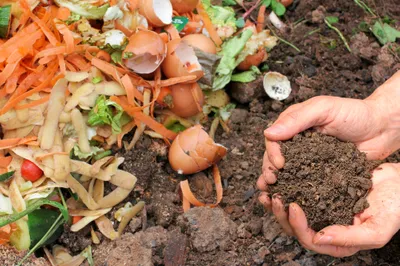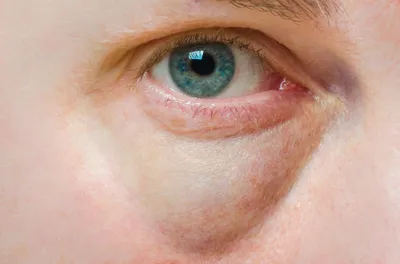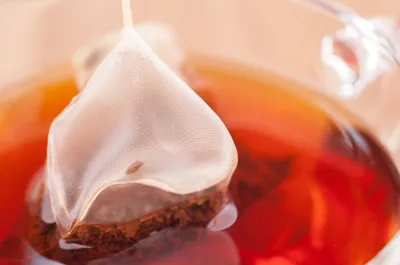After you’re finished sipping your cup of tea do you toss your used tea bags in the trash? You might not know it, but if you do you’re wasting a multipurpose health tool that can be used to heal everything from chapped lips to bleeding gums. So don’t just toss your soggy tea bags in the trash can. Put them to work as the following 7 DIY health and wellness remedies…
1. Restore that Picture Perfect Smile
If your smile is a little less than glowing, it turns out that used tea bags can restore the perfect, photogenic grin. Not only does research suggest that sipping green tea or applying used bags to you lips will restore hydration to your pucker due to the powerful skin-renewal polyphenols within.
A 2010 study from Japan’s Hiroshima Prefectural University, show that the natural anti-inflammatory benefits within green tea can prevent periodontal disease (or gum decay). The study monitored the tea-drinking habits of 1,000 study participants and linked daily green tea sipping with healthier gums and less tooth loss with age.
2. Protect Pet Paws
After the winter we just had (in Southwestern Ontario) many dogs are inevitably feeling the pain in their tender paws. All of that road salt on sidewalks is enough to leave poor Fido’s paws dry, cracked, red, and irritated.
Luckily many veterinarians recommend a natural cure in black tea bags. Apply a cool, wet tea bag to your pup’s foot pads twice daily to ease the pain of cracked paws. Or run your pet a foot bath containing a few black tea bags to strengthen restore damaged foot pads. The natural plant polyphenols within black tea have been shown to speed skin cell repair.
3. Soothe Searing Sunburn
There’s nothing worse than a painful sunburn on a beautiful, sunny day. However, multiple scientific studies show that green and black tea bags dipped in cold water and applied directly to sunburn (or immersing in a bath filled with green or black tea bags) can greatly relieve pain and inflammation due to UV radiation damage.
Research published by the National Institutes of Health found that both green and black teas contain antioxidants and anti-inflammatory properties, known as polyphenols, which are able to soothe sunburn, reduce inflammation, and cleanse the body of free radicals following UV exposure. Catechins in tea have been shown to repair skin damage and even prevent chemical- and radiation- induced skin cancers. The research also established epigallocatechin-3-gallate (EGCG), the foremost active ingredient in green tea, as a powerful anti-inflammatory, antioxidant, and natural sunscreen.
4. Bathe Away Skin Irritations
The well-known antioxidants within tea (especially green tea and chamomile tea) mean that running a soothing bath filled with steeped, used tea bags can soothe and pamper irritated skin. Don’t be shy, drop those used tea bags directly into your bathwater and immerse yourself to feel their soothing, nourishing powers.
Alternately, you can apply a moist tea bag directly to your skin (or the area of irritation) to reduce swelling, ease itch, and lessen the pain of sunburn, chaffing, bruises, and swelling to quicken the healing process. In fact, research from Robert Wood Johnson University Hospital, in Somerset, New Brunswick, in Canada recommends applying a wet tea bag directly to treat insect stings and bites for 15- to 20-minutes to reduce swelling and draw out toxins.
5. Activate Healthy Compost Bacteria
If you have a compost pile in your garden like I do, you depend on the healthy nutrients and bacteria from your product peelings to enrich your spring and summer bounty of mushrooms, ramps, tomatoes, kale, lettuce, zucchinis, and other fresh fruits and vegetables.
However, often, in the cooler months (I’m looking at you March, April, and September) decomposition of compost piles often slows due to sluggish bacteria activity needed for healthy breakdown. To speed things along, I toss in all of my used tea bags. Black tea, in particular, is rich in nitrogen, which nourishes bacteria with vital energy for healthy compost decomposition.
6. Ease Puffy Eyes and Bruising
Up all-night completing a school or work deadline? That vital sleep sacrifice is sure to show up where it will be seen by all—right under your eyes. According to research from the Mayo Clinic, when we skimp on sleep or experience increased stress (or both) the blood vessels in the delicate skin around our eyes swell, resulting in unattractive dark circles and puffy eyes.
If you don’t have a cucumber handy, save that used green tea bag and apply it directly to your closed eyes. The rich antioxidants and astringent benefits of tannins within green tea will slowly work to constrict swollen blood vessels and capillaries under the eyes. Tea bags also flush out fluids pooling under the eyes. Research shows that you can do the same with an unsightly bruise to speed healing.
7. Draw Out Infection
From canker sores to blisters—tea bags have been long-touted for their astringent capabilities. According to Janet Zand, a licensed acupuncturist, Oriental medical practitioner, and author of the book, Smart Medicine for a Healthier Child, warm tea bags used as compresses are a long-used home remedy to draw out infection.
The healing tannins within herbal tea compresses contain astringent qualities that may ease pain, prevent bleeding, and form a protective layer over the exposed tissue to reduce the risk of infection. For instance, a common and natural treatment for canker sores or inner mouth abrasions is simply biting down on a moist, wet black tea bag.










